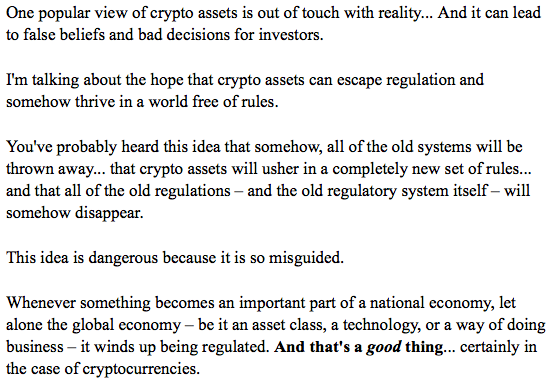I get your point about regulation relative to other countries if we do more of it then other countries. However, there is too much money in the future of blockchain and the cryptocurrency market and too much risk of being locked outside this market. I don't know of any sizable country who is considering no level of regulation. I also don't agree that regulation requires worldwide consensus. Instead, one government will make a move and the others will watch and adopt the parts that work. There is zero chance any meaningfully developed country lets the crypto market freely build. That's simply a fantasy.
The other point, is that institutional money will only flow into crypto market en masse when there is some order to the market. They won't just enter to gamble. That is what will set this market on it's multi-trillion dollar expansion. The first step was to approve the futures and options markets last year. This allows institutional investors to hedge their portfolios, which is required. Next is for large financial institutions to hold actual cryptos on behalf of their clients, called custodian service. Finally, without some sort of ICO regulation, all the big money will bi-pass these and go to direct funding of the business (blockchains), which is happening now. June 11th.
Update: June 12th.
Here's a small quote from Dr. Smith, a PhD mathematician who is the founder of TradesStops service, who wrote an article on this topic today:
( )
)
....
( )
)
Nice response. I agree to an extent. Sometimes I like to go full idealist. I'd like to think that blockchain can self-regulate. It's already been demonstrated that blockchains for a platform of voting and government are a real possibility. Just look at DPOS.